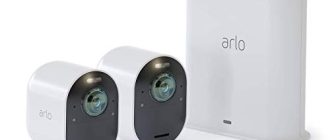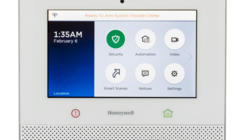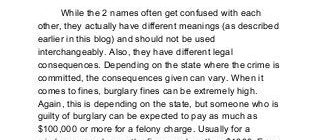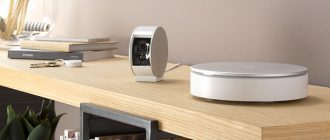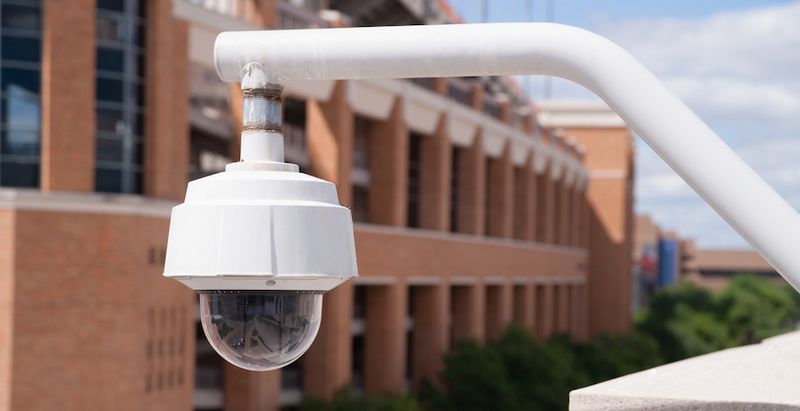
All You Wanted To Know About Home Security Systems
Welcome to the complete guide on home security systems! If you are concerned about your safety and want to protect your home, this article is for you. We will cover all the important aspects of home security systems, from the basics to advanced features. By the end of this guide, you will know everything you need to know about home security systems and be able to make informed decisions to secure your home.
Security is a top priority for every homeowner. With the increasing threats of burglaries and break-ins, it is essential to have a reliable home security system in place. In this guide, we will discuss the different types of security systems available, including alarm systems, surveillance cameras, and smart home technology. We will also highlight the importance of choosing the right security system based on your specific needs and budget.
Whether you are a homeowner or a renter, young or old, living in a house or an apartment, this guide is applicable to all. We will delve into the various components of a home security system, such as sensors, control panels, and monitoring services. Additionally, we will explore the benefits of security systems, including deterrence, peace of mind, and potential discounts on insurance premiums.
So, if you want to learn all there is to know about home security systems, grab a cup of coffee and get ready to become an expert in protecting your home. Remember, investing in a reliable security system is a proactive approach to ensure the safety of your loved ones and your valuable belongings. Let’s dive in and discover the world of home security systems!
The Importance of Home Security Systems
When it comes to your home, security is something you should never take lightly. You never know when you might become the target of a burglary or other criminal activity. That’s why it’s crucial to invest in a reliable home security system.
Home security systems offer you the peace of mind you’ve always wanted. They provide a comprehensive solution to protect your home, belongings, and loved ones. With the advancements in technology, home security systems have become more advanced and accessible to everyone.
Having a home security system installed means you have eyes and ears monitoring your property 24/7. These systems come with a range of features, such as burglar alarms, surveillance cameras, motion sensors, and access control. They not only deter criminals but also provide evidence in case of a break-in.
All you have to do is arm your security system, and it will take care of the rest. If someone tries to enter your home without permission, the alarm will sound, alerting you and your neighbors. Many modern home security systems also come with mobile apps, allowing you to monitor your home from anywhere in the world.
Home security systems not only protect against burglaries but also provide safety in other emergencies. They can detect smoke and carbon monoxide, alerting you and emergency services in case of a fire or gas leak. Some systems even offer medical alert features, allowing you to call for help in case of a medical emergency.
In addition to providing security, home security systems can also help you save on insurance premiums. Many insurance companies offer discounts for homeowners who have installed security systems. This means that over time, your investment in a home security system can even pay for itself.
All in all, when it comes to the safety of your home and your loved ones, you can never be too cautious. Investing in a reliable home security system is the smart choice for anyone who wants to ensure their peace of mind and protect what matters most.
Types of Home Security Systems
When it comes to home security, there are many different types of systems that you can choose from. It’s important to know what options are available to you in order to make the best decision for your needs. Here are some of the most popular types of home security systems:
| 1. Burglar Alarms | These systems use sensors to detect when a door or window has been opened or when motion is detected inside the home. They typically include an alarm that will sound to deter intruders and notify you of a possible break-in. |
| 2. CCTV Systems | Closed-circuit television (CCTV) systems use cameras to monitor the inside and/or outside of your home. The footage can be viewed in real-time or recorded for later viewing. CCTV systems are often used in conjunction with other security measures. |
| 3. Access Control Systems | These systems are used to control who has access to your home. They can include keypad or keycard entry systems, fingerprint scanners, or even facial recognition technology. Access control systems can be used for both residential and commercial properties. |
| 4. Fire Alarm Systems | Fire alarm systems are designed to detect smoke or heat and alert you to a potential fire. They can also be connected to a monitoring service that will notify emergency services if a fire is detected. |
| 5. Environmental Monitoring Systems | These systems monitor for environmental hazards such as carbon monoxide, flooding, or extreme temperatures. They can provide early warnings and help prevent damage to your home and belongings. |
These are just a few examples of the many different types of home security systems available. It’s important to research and consider your specific needs and budget before making a decision. A combination of different security measures may be the best option to ensure the safety and security of your home.
Choosing the Right Home Security System
When it comes to the security of your home and loved ones, it’s important to choose the right home security system. With so many options available, it can be overwhelming to know where to start. But don’t worry, we’re here to help you make an informed decision.
The first thing you need to consider is what you want to achieve with your home security system. Are you looking for a comprehensive system that includes surveillance cameras, motion detectors, and a monitoring service? Or are you simply looking for a basic system that will provide you with a sense of security?
Next, you should think about your budget. Home security systems can vary greatly in price, so it’s important to set a budget before you start shopping. Remember, the most expensive system isn’t always the best, so don’t be tempted to overspend.
Once you have a clear idea of what you want and how much you’re willing to spend, it’s time to start researching different home security providers. Read customer reviews and compare prices and features to find the best fit for your needs.
One important factor to consider is the reliability of the home security system. Look for a provider with a good track record and strong customer support. You want to be confident that your system will work when you need it most.
Additionally, consider the level of customization offered by the home security system. Everyone’s needs are different, so it’s important to choose a system that can be tailored to fit your specific requirements.
Lastly, don’t forget to think about the installation process. Some systems require professional installation, while others can be easily set up by the homeowner. Consider your technical skills and the amount of time you’re willing to invest in installation when making your decision.
Choosing the right home security system is an important decision that shouldn’t be taken lightly. By considering your needs, budget, reliability, customization options, and installation process, you’ll be well on your way to finding the perfect system for your home.
Factors to Consider When Installing a Home Security System
When it comes to home security systems, there are several factors that you need to consider in order to make an informed decision. After all, the safety and security of your home and loved ones is of utmost importance. Here are some key factors to keep in mind:
1. Your specific security needs: Every home is unique, and so are its security requirements. Before installing a security system, evaluate the vulnerabilities and risks associated with your property. Consider factors such as the size of your home, number of entry points, and crime rate in your neighborhood.
2. Type of security system: There are different types of security systems available in the market, including burglar alarms, surveillance cameras, motion sensors, and access control systems. Determine which type of system best suits your needs and offers the level of protection you desire.
3. Professional installation or DIY: Decide whether you want to hire a professional to install your home security system or if you prefer a do-it-yourself (DIY) approach. Professional installation ensures that the system is properly set up and integrated with your home’s infrastructure, while DIY installation can be more cost-effective.
4. Monitoring services: Consider whether you want to opt for professional monitoring services. These services typically include round-the-clock monitoring of your security system by a central monitoring station. They can provide immediate response in case of alarms and alerts, giving you added peace of mind.
5. Budget: Determine your budget for a home security system. Prices can vary depending on the type of system, features, and additional services. It’s important to find a balance between cost and quality to ensure you get the best value for your investment.
6. User-friendly interface: Look for a security system that is easy to use and navigate. A user-friendly interface will allow you to easily arm and disarm the system, access real-time video feeds, and control various settings. This is especially important if you have family members who might need to operate the system.
7. Scalability: Consider the scalability of the security system. As your home and security needs may change over time, it’s important to choose a system that can be easily expanded or upgraded to accommodate future requirements.
By taking into account these factors, you can make an informed decision when installing a home security system that meets your specific needs and provides you with the peace of mind you deserve.
Benefits of Having a Home Security System
When it comes to home security, having a reliable system in place is crucial. There are many benefits to investing in a home security system that go beyond just feeling safe and secure. Knowing about the various advantages of such systems will help you make an informed decision and protect your home and loved ones effectively.
First of all, home security systems provide all-around protection. Whether you are at home or away, you can have peace of mind knowing that your property is being monitored. These systems are designed to detect any suspicious activities and alert you or the authorities immediately.
In addition, home security systems can help you to know what’s happening in and around your home. With features like video surveillance, you can monitor your property remotely. This is especially useful when you are on vacation or want to keep an eye on your children or elderly family members.
Another benefit of having a home security system is the deterrence factor. Studies have shown that homes with visible security systems are less likely to be targeted by burglars. The presence of cameras, alarms, and signs indicating the presence of a security system can discourage criminals and protect your property.
Furthermore, a home security system can provide protection against fire and other emergencies. Many modern systems come with smoke detectors and carbon monoxide detectors that can alert you in case of potential hazards. This early detection can save lives and prevent extensive damage.
Having a home security system also allows for remote access and control. With your smartphone or computer, you can arm or disarm your system, lock or unlock doors, and control other connected devices. This convenience and flexibility add an extra layer of convenience and control to your home security setup.
Lastly, investing in a home security system can lead to lower insurance premiums. Most insurance companies offer discounts for homeowners who have security systems installed. This can result in significant savings over time and offset the initial cost of the system.
In conclusion, home security systems offer a wide range of benefits. From providing all-around protection and remote monitoring to deterring criminals and reducing insurance costs, these systems are an essential component of any modern home. By understanding the advantages of having a home security system, you can make an informed decision and enjoy peace of mind knowing that your home and loved ones are protected.
Features to Look for in a Home Security System
When it comes to home security systems, there are numerous features to consider. It’s important to know about these features so you can make an informed decision about which system is best for you.
1. Monitoring: Look for a system that offers 24/7 monitoring. This means that your home will be constantly monitored by a professional monitoring center, providing an extra layer of security.
2. Remote Access: Having the ability to access your home security system remotely is a key feature to look for. This allows you to control and monitor your system from anywhere using your smartphone or computer.
3. Motion Sensors: Motion sensors are an essential feature of any home security system. They detect movement in and around your home, alerting you to potential intruders.
4. Video Surveillance: Look for a system that includes video surveillance. This allows you to monitor your home through live video feeds, providing an extra level of security.
5. Door and Window Sensors: Door and window sensors are another important feature. These sensors detect when a door or window is opened, triggering an alarm if the system is armed.
6. Alarm: Make sure the home security system you choose includes an alarm. The alarm will sound if the system is triggered, alerting you and potentially scaring off intruders.
7. Smoke and Carbon Monoxide Detection: Look for a system that includes smoke and carbon monoxide detectors. These detectors can save lives by alerting you to potential fires or gas leaks.
8. Home Automation: Consider a system that offers home automation features. This allows you to control various aspects of your home, such as lights and thermostats, from your security system.
9. Wireless Connectivity: Look for a system that offers wireless connectivity. This makes installation easier and allows for flexibility in placing the sensors and cameras throughout your home.
10. Mobile Alerts: Make sure the system has the ability to send you mobile alerts. This way, you will be immediately notified of any suspicious activity or alarms while you’re away from home.
By knowing about these features and looking for them in a home security system, you can ensure that you choose a system that meets your specific needs and provides the level of security you desire.
How Home Security Systems Work
Home security systems are an essential component of keeping your household safe and protected from potential threats. Whether you want to safeguard your family or protect your valuable possessions, it’s crucial to understand how these systems work.
Home security systems consist of various interconnected devices and components that work together to detect and deter intruders. These devices include sensors, control panels, alarms, and cameras.
The first line of defense in a home security system is the sensors. These sensors are strategically placed around your home to detect any unusual activity. There are different types of sensors, such as motion detectors, door and window sensors, and glass break detectors. When these sensors detect movement or a breach, they send a signal to the control panel.
The control panel is the brain of the security system and acts as the central hub that receives and processes signals from the sensors. It is usually located in a discreet area, such as a closet or basement, to prevent tampering. The control panel will then activate the next line of defense, which is the alarms.
When an alarm is triggered, it creates a loud noise to alert the homeowner and also scare away potential intruders. Alarm systems can be programmed to include sirens, strobe lights, and even voice alerts. This helps to ensure that any unauthorized entry is noticed and addressed immediately.
In addition to sensors and alarms, many modern home security systems also include surveillance cameras. These cameras capture video footage of the surroundings and can be accessed remotely through a smartphone or computer. Having surveillance cameras not only provides an added layer of security but also assists in identifying intruders or suspicious activity.
Furthermore, home security systems can be integrated with smart technology, allowing homeowners to control and monitor their systems from anywhere. This includes arming and disarming the system, receiving instant notifications, and even controlling other aspects of the home, such as lights and thermostats.
In conclusion, home security systems work by combining various devices and components to detect, deter, and alert homeowners of any potential threats. Understanding how these systems function is crucial in choosing the right system for your home and ensuring the safety of your loved ones and belongings.
DIY Home Security Systems vs Professional Installation
When it comes to home security systems, there are two main options to consider: DIY installation or professional installation. It’s important to know all about these systems in order to make an informed decision about which one is right for your home.
DIY Home Security Systems:
A DIY home security system is one that you install and set up yourself. This option typically includes a package of devices such as cameras, sensors, and a control panel that you can easily install on your own. The system usually comes with detailed instructions, making it accessible for anyone to set up.
One of the key advantages of a DIY system is cost. Since there is no need to pay for professional installation, the overall price is often lower compared to a professionally installed system. Additionally, you have the flexibility to choose the components and customize your system according to your specific needs.
However, it’s important to note that DIY systems may not have the same level of expertise and support as professionally installed systems. You may have to troubleshoot any issues yourself, and customer support could be more limited.
Professional Installation:
A professionally installed home security system involves having a team of experts come to your home to set up the system for you. They will assess your home’s specific needs and install the necessary devices to ensure optimal security.
With professional installation, you can expect a high level of expertise and support, as the installers are trained to handle any issues that may arise. They will also provide guidance on the best placement for cameras and sensors, maximizing their effectiveness.
While professional installation does come with a higher upfront cost, it may be worth it for those who prefer a hands-off approach and want the peace of mind that comes with professional help. Additionally, certain systems may require professional installation in order to maintain warranty coverage.
In conclusion, both DIY home security systems and professional installation have their pros and cons. It’s important to consider your budget, technical skills, and personal preferences when deciding between the two. Ultimately, the goal is to choose a system that will provide the level of security that you desire for your home.
Common Home Security System Mistakes to Avoid
When it comes to the security of your home, it’s important to be well-informed about the different types of home security systems available. However, even with all the information out there, many people still make common mistakes when it comes to their home security systems. Here are some of the most common home security system mistakes to avoid:
- Not arming the security system: One of the most basic and common mistakes is forgetting to arm your home security system. Whether you’re just going out for a quick errand or leaving for a vacation, always remember to arm your security system to protect your home.
- Leaving doors and windows unlocked: Another common mistake is leaving doors and windows unlocked, making it easy for intruders to enter your home. Always double-check that all doors and windows are locked before leaving.
- Not testing the system regularly: A home security system is only effective if it’s working properly. Make sure to test your system regularly to ensure that all the sensors, alarms, and cameras are functioning correctly.
- Not securing the perimeter: Many homeowners focus solely on securing the interior of their home and forget to pay attention to the perimeter. Install outdoor security cameras, motion sensor lights, and secure fences or gates to deter intruders.
- Using weak passwords: Your home security system may be vulnerable if you’re using weak passwords or have not changed the default password. Update your passwords regularly and use strong, unique passwords to enhance the security of your system.
- Not updating the system: Home security technology is constantly evolving, and it’s important to keep your system up to date. Regularly check for firmware updates and install them to ensure your system is equipped with the latest security features.
- Not having backup power: Power outages can leave your home vulnerable if your security system relies solely on electricity. Install a backup power source, such as a battery or generator, to ensure your system stays operational during outages.
- Forgetting to secure entry points: While doors and windows are common entry points, don’t forget about other vulnerable areas such as garage doors, basement entrances, and skylights. Secure all possible entry points to prevent unauthorized access.
Avoiding these common home security system mistakes can help ensure the safety and protection of your home and loved ones. Stay informed, stay vigilant, and make smart choices when it comes to your home security.
Home Security System Installation Process
If you have ever wanted to know how home security systems are installed, here is a step-by-step guide.
First of all, it is important to do proper research and choose a reliable security system that fits your needs. Look for a system that includes features such as motion sensors, door and window sensors, video surveillance, and a control panel.
Once you have purchased the security system, make sure to read the installation instructions carefully. Most security systems come with a detailed user manual that will guide you through the installation process.
The next step is to decide where to place the control panel. This is usually the central hub of the security system and should be easily accessible. Common locations include the living room or near the main entrance.
After setting up the control panel, it’s time to install the sensors. These sensors are responsible for detecting any unauthorized access. Place the door and window sensors on all entry points, including windows, doors, and garage entrances.
Next, install the motion sensors in strategic locations throughout the house. These sensors detect any movement and trigger the alarm system. Common locations for motion sensors are hallways, living areas, and staircases.
Once the sensors are in place, you can proceed with installing the cameras if your security system includes video surveillance. Cameras should be strategically placed to capture the desired areas, such as the front door, back yard, or any other vulnerable spots.
Finally, connect the security system to a power source and test all components to ensure they are functioning properly. Follow the instructions provided by the manufacturer to set up the system and configure any additional features, such as remote access or smartphone notifications.
Remember, if you are not comfortable with the installation process, it is always recommended to hire a professional to install your home security system. They have the knowledge and expertise to ensure proper installation and can answer any questions you may have.
By following this installation process, you can have a reliable and effective home security system that brings peace of mind and keeps your family and property safe.
Home Security System Maintenance and Upkeep
To ensure optimal functioning and reliability, it is important to properly maintain and upkeep your home security system. Here is all you need to know about keeping your system in top shape:
- Regular Inspections: Conduct routine inspections of all components of your security system, including cameras, sensors, alarm panels, and control panels. Ensure that they are free from dust, debris, or any physical damage.
- Battery Checks: Check the batteries in your security devices regularly and replace them as needed. Weak or dead batteries can compromise the effectiveness of your system.
- Software Updates: Keep your security system’s software up to date. This ensures that you have the latest security patches and improvements, reducing the risk of vulnerabilities.
- Test Alarms Regularly: Test your alarm system regularly to make sure it is functioning properly. This can include triggering motion sensors and checking if the alarm sound is loud and clearly audible.
- Monitor Sensor Placement: Verify that all sensors are properly aligned and positioned. Make sure they are not obstructed by objects or affected by environmental factors, such as infrared sensors being triggered by direct sunlight or false alarms caused by pets.
- Secure Network: Ensure that your security system is connected to a secure network. Periodically update your Wi-Fi password and network security settings to prevent unauthorized access to your system.
- Document Emergency Contacts: Keep a list of emergency contacts, including local law enforcement and your security system provider. This will ensure prompt response and support in case of an emergency.
- Professional Maintenance: Consider scheduling regular maintenance visits from a professional security system technician. They can identify any potential issues, perform necessary repairs or upgrades, and provide expert advice.
Following these maintenance practices can help prolong the lifespan of your home security system and ensure its efficient operation when you need it the most.
Home Security Systems and Insurance
When it comes to home security, having a reliable system in place is crucial. Installing a home security system can provide peace of mind and protect your property and loved ones from potential threats.
But did you know that having a home security system can also affect your insurance? Many insurance companies offer discounts on homeowners’ insurance premiums to customers who have a security system installed.
Insurance companies view home security systems as a way to minimize the risk of theft, vandalism, and other damages. By having a security system, you are showing the insurance company that you are taking proactive steps to protect your home. This reduces the likelihood of a claim being made, which in turn reduces the insurance company’s risk.
When applying for insurance or renewing your policy, be sure to mention that you have a home security system in place. The insurance company will ask for details about the type of system you have, including whether it includes features such as surveillance cameras, motion sensors, and alarms.
Having a more advanced security system with additional features may result in greater insurance savings. The insurance company will take into account the level of protection your system provides and adjust your premiums accordingly.
It’s important to note that not all security systems will qualify for insurance discounts. Some insurance companies have specific requirements in terms of the equipment being used or the monitoring service that is in place. It’s a good idea to check with your insurance provider to ensure that your system meets their criteria for a discount.
Additionally, regular maintenance and monitoring of your home security system are essential to keep it in good working condition. Insurance companies may require proof that your system is functional and regularly maintained in order to continue receiving the discount.
In conclusion, home security systems not only provide protection for your home but can also help save you money on insurance premiums. By investing in a reliable and properly maintained system, you can enjoy added security and financial benefits at the same time.
Q&A:
What is a home security system?
A home security system is a set of devices and techniques designed to protect your home from intruders and other potential dangers.
How does a home security system work?
A home security system typically includes sensors, cameras, and a central control panel. The sensors detect any unusual activities, such as a door or window being opened, and send a signal to the control panel. The control panel then activates the alarm and may also notify a monitoring service or the homeowner.
What are the benefits of having a home security system?
Having a home security system can provide several benefits. It can deter burglars and other criminals, protect your valuables, provide peace of mind, and may even lower your homeowners insurance premiums.
What are the different types of home security systems?
There are several types of home security systems available, including wired systems, wireless systems, monitored systems, and do-it-yourself (DIY) systems. Wired systems require running wires throughout your home, while wireless systems use radio frequencies to communicate. Monitored systems are connected to a monitoring service that can alert authorities if necessary, while DIY systems can be installed and monitored by the homeowner.
How much does a home security system cost?
The cost of a home security system can vary depending on several factors, including the type of system, the number of sensors and cameras, and any additional features or services. On average, the cost can range from a few hundred dollars to several thousand dollars. Some companies also offer monthly monitoring services for an additional fee.

